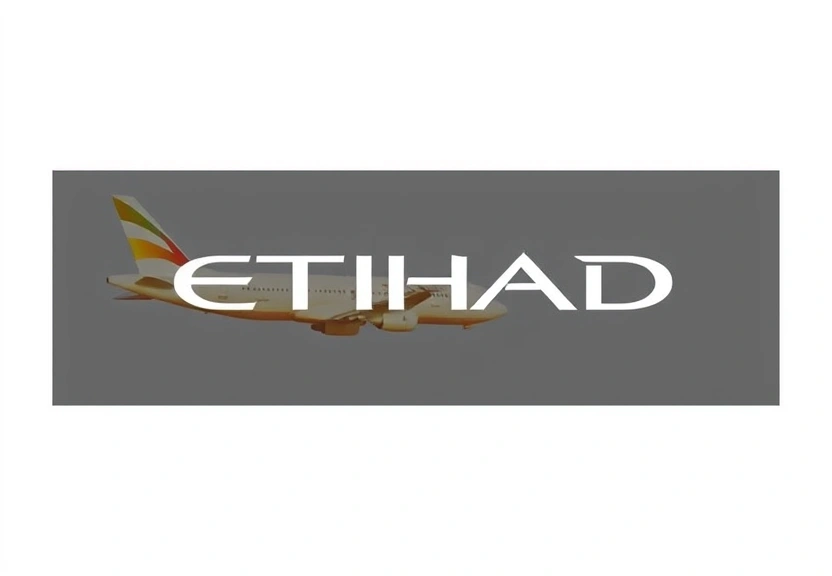Etihad Airways CEO: No Urgent IPO Plans Thanks to Strong Self-Funding
In recent statements, the CEO of Etihad Airways has clarified the airline’s stance regarding initial public offerings (IPOs), emphasizing that there are currently no urgent plans to pursue this financial route. The company’s robust self-funding capabilities have played a significant role in this decision. In the context of an evolving airline industry, this development highlights the strategic directions being taken by one of the world’s leading airlines.

As the aviation sector continues to recover from the impacts of the COVID-19 pandemic, many airlines are re-evaluating their financial strategies. IPOs have often been viewed as a means for airlines to raise capital for expansion and operational enhancements. However, the CEO’s recent remarks underscore Etihad Airways’ commitment to self-sustainability and fiscal responsibility. This article delves into the implications of these statements, examining the current landscape of the airline industry and what it means for Etihad’s future.
The Current State of the Airline Industry
The airline industry has been on a tumultuous journey over the past few years, marked by unprecedented challenges brought on by the COVID-19 pandemic. As travel restrictions lifted and global demand for air travel surged, airlines faced the dual challenge of recovering lost revenue while managing operational costs. In this environment, the financial strategies adopted by airlines are increasingly critical.
Recovery Post-Pandemic
- Increased passenger demand as travel restrictions ease.
- Operational challenges in managing staffing and resources.
- Heightened competition among airlines to capture market share.
Many airlines have turned to IPOs as a potential solution to raise capital and expand their operations. However, the CEO of Etihad Airways believes that the airline’s current financial position negates the need for such measures at this time. This assertion reflects a broader trend within the industry, where self-funding and strategic financial planning are taking precedence over immediate capital raises.
Etihad Airways’ Financial Strategy
Etihad Airways has adopted a proactive approach to financial management, emphasizing self-funding as a core strategy for sustainability and growth. This approach allows the airline to maintain control over its operations and financial health without the pressures often associated with public markets.
Advantages of Self-Funding
- Greater financial autonomy and control over business decisions.
- Reduced pressure from shareholders and market fluctuations.
- The ability to invest strategically in growth opportunities without immediate financial constraints.
Self-funding enables Etihad Airways to reinvest in its fleet, enhance customer experience, and expand its route network. By focusing on internal resources, the airline can prioritize long-term growth over short-term gains, aligning its investments with market demands and consumer preferences.
CEO’s Vision for the Future
According to the CEO’s recent statements, the airline’s future looks promising, with plans to capitalize on emerging opportunities within the aviation market. The commitment to self-funding is part of a larger vision to position Etihad as a leader in the industry, not just in terms of market presence but also in innovation and sustainability.
Key Initiatives and Innovations
- Investment in fuel-efficient aircraft to reduce carbon footprint.
- Enhancements in passenger experience through digital innovations.
- Expansion of route networks to meet growing demand.
By focusing on sustainability and innovation, Etihad Airways aims to attract a loyal customer base that values both efficiency and environmental responsibility. This forward-thinking approach is essential for remaining competitive in a rapidly evolving industry landscape.
Market Reactions and Future Implications
The announcement of no urgent IPO plans has elicited mixed reactions from industry analysts and investors. While some view this as a positive sign of financial stability, others express concern over whether the airline can sustain its growth trajectory without the capital influx that an IPO could provide.
Potential Challenges Ahead
- Fluctuating fuel prices and their impact on operational costs.
- Ongoing competition from low-cost carriers.
- Regulatory changes impacting international travel.
Despite these challenges, Etihad Airways’ commitment to self-funding allows it to navigate the complexities of the airline industry with a degree of flexibility. The focus on self-sustainability could ultimately position the airline to capitalize on future growth opportunities while reducing its reliance on external financial markets.
Frequently Asked Questions (FAQ)
1. Why is Etihad Airways not pursuing an IPO at this time?
Etihad Airways’ CEO has stated that the airline’s strong self-funding capabilities eliminate the urgent need for an IPO, allowing for greater financial autonomy and control.
2. What are the benefits of self-funding for airlines?
Self-funding offers airlines financial independence, reduced pressure from shareholders, and the ability to invest strategically in growth without immediate financial constraints.
3. How has the airline industry changed post-pandemic?
The airline industry has seen increased passenger demand, operational challenges, and heightened competition as it recovers from the impacts of the COVID-19 pandemic.
4. What initiatives is Etihad Airways focusing on for future growth?
Etihad Airways is investing in fuel-efficient aircraft, enhancing passenger experiences through digital innovations, and expanding its route network to meet growing demand.
5. What challenges does Etihad Airways face moving forward?
Challenges include fluctuating fuel prices, competition from low-cost carriers, and potential regulatory changes affecting international travel.
Conclusion
The statements made by Etihad Airways’ CEO regarding the absence of urgent IPO plans reflect a strategic focus on self-funding that may serve to strengthen the airline’s position within the competitive aviation market. As the airline industry continues to evolve, Etihad’s emphasis on sustainability, innovation, and financial responsibility may well enhance its resilience and capacity for growth in a post-pandemic world. By prioritizing self-funding over immediate public offerings, Etihad Airways is setting a precedent for other airlines, highlighting the importance of strategic financial planning in navigating today’s complex airline landscape.
📰 Original Source
Este artigo foi baseado em informações de: https://www.investing.com/news/stock-market-news/exclusiveetihad-airways-ceo-sees-no-rush-for-ipo-with-ample-selffunding-4220130


